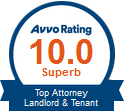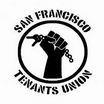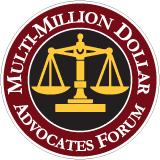On March 27th, Governor Newsom issued a statewide Order related to evictions. Although this Order has been described as a moratorium on evictions, it is not. The Order only applies to evictions for non-payment of rent, and even then only applies if the tenant meets certain strict requirement.
For this limited set of evictions, the Order does two things: (1) The Order prohibits the enforcement of any writ to evict the tenant on or before May 31, 2020; and (2) The Order extends by 60 days the time for the tenant to file a responsive pleading (answer, demurrer, or motion to quash) as specified in Code of Civil Procedure section 1167.
The Order expires on May 31, 2020.
For the tenant to obtain the meager benefits of the Order, the tenant must satisfy all of the following requirements:
(a) Prior to the date of this Order, the tenant paid rent due to the landlord pursuant to an agreement.
(b) The tenant notifies the landlord in writing before the rent is due, or within a reasonable period of time afterwards not to exceed 7 days, that the tenant needs to delay all or some payment of rent because of an inability to pay the full amount due to reasons related to COVID-19, including but not limited to the following:
(i) The tenant was unavailable to work because the tenant was sick with a suspected or confirmed case of COVID-19 or caring for a household or family member who was sick with a suspected or confirmed case of COVID-19;
(ii) The tenant experienced a lay-off, loss of hours, or other income reduction resulting from COVID-19, the state of emergency, or related government response; or
(iii) The tenant needed to miss work to care for a child whose school was closed in response to COVID-19.
(c) The tenant retains verifiable documentation, such as termination notices, payroll checks, pay stubs, bank statements, medical bills, or signed letters or statements from an employer or supervisor explaining the tenant’s changed financial circumstances, to support the tenant’s assertion of an inability to pay. This documentation may be provided to the landlord no later than the time upon payment of back-due rent.
Importantly, this Order will not stop a Sheriff from enforcing a writ (i.e., evicting a tenant) for any type of eviction other than non-payment related to COVID-19.
Additionally, this Order will not extend the time for a tenant to respond to an unlawful detainer lawsuit for any type of eviction other than non-payment related to COVID-19. Those eviction lawsuits will move forward on the typical accelerated schedule for summary proceedings.
Finally, this Order does not create a defense to an eviction for nonpayment, even if the tenant satisfies all the conditions. The Order only postpones such an eviction. The Order does not extend the time for the tenant to pay rent. If the tenant cannot pay rent on time, the landlord could still choose to pursue the eviction once the Order expires even if the tenant was able to make up the rent payments at a later date.
The full Order can be viewed here.













